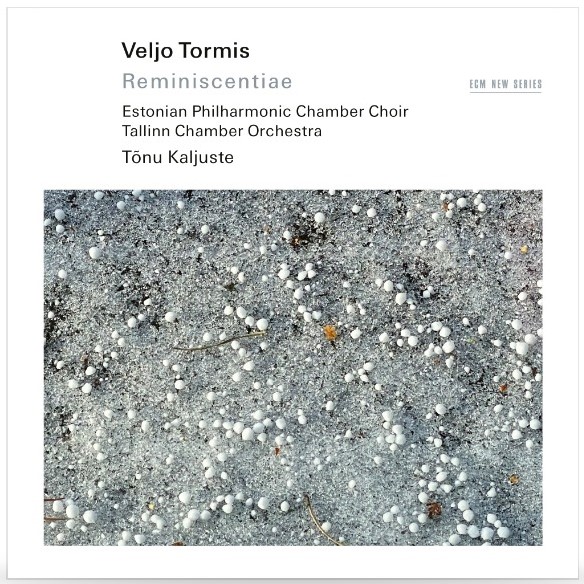German record label ECM has released “Reminiscentiae” (Reminiscences), a new album of the late composer Veljo Tormis’ work, recorded by the Estonian Philharmonic Chamber Choir and Tallinn Chamber Orchestra under the baton of Tõnu Kaljuste.
Conductor Tõnu Kaljuste, who chose the material for the recording, described the album as “reminiscences of reminiscences”. “There are several reminiscences of Veljo Tormis from his childhood, such as ‘Sad Songs’ and ‘Chants’, as well as the string arrangements of his choral works ‘Reminiscentiae’. Of course, the work ‘The Tower Bell in My Village’ is also on the disc,” the conductor, who commissioned the latter work from Tormis in 1978, said.
Kaljuste recalled that he had taken the text of “The Tower Bell in My Village” by the Portuguese poet Fernando Pessoa and went to the Tormis’s home with the request that the composer create a piece for the choir’s concert tour. “All in all, this album contains reminiscences from different times of our collaboration. This is the first I have recorded since the composer left us,” the conductor noted.
In addition, “Worry Breaks the Spirit” and “Hamlet’s Song I”, written for choir and orchestra, are also recorded on the album.

Veiko Tubin (narrator), Annika Lõhmus, Triin Sakermaa and Maria Valdmaa (sopranos), Iris Oja (mezzo-soprano), Indrek Vau (trumpet), Madis Metsamart (percussion) and Linda Vood (flute) were the soloists on the recording.
The album was recorded in 2020 at the Tallinn Methodist Church, with ECM’s founder Manfred Eicher as the producer.

Tõnu Kaljuste was for decades one of Tormis’s closest musical associates and, in the past, the conductor and the Estonian Philharmonic Chamber Choir have released two albums of the composer’s music on ECM – “Forgotten Peoples” (1992) and “Litany to Thunder” (1999).
One of the greatest choral music writers
Veljo Tormis, who died at the age of 86 in January 2017, was internationally regarded as one of the greatest choral music writers in the modern era, and one of the most important composers of the 20th century in Estonia.

He created a choral tradition of his own, the unique “Tormis’ style”. From his student days until his retirement from composition in 2000, Tormis composed over 500 individual choral songs, as well as other vocal and instrumental pieces, 35 film scores and an opera.
His composition most often performed internationally is “Curse Upon Iron” (“Raua needmine”, 1972), that invokes ancient shamanistic traditions to construct an allegory about the evils of war.
Tormis also composed for Estonian films, including the score for “Kevade” (“Spring”, 1969) that is based on the story by Oskar Luts, and regarded as the best Estonian movie of all time.

